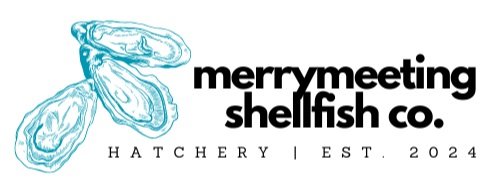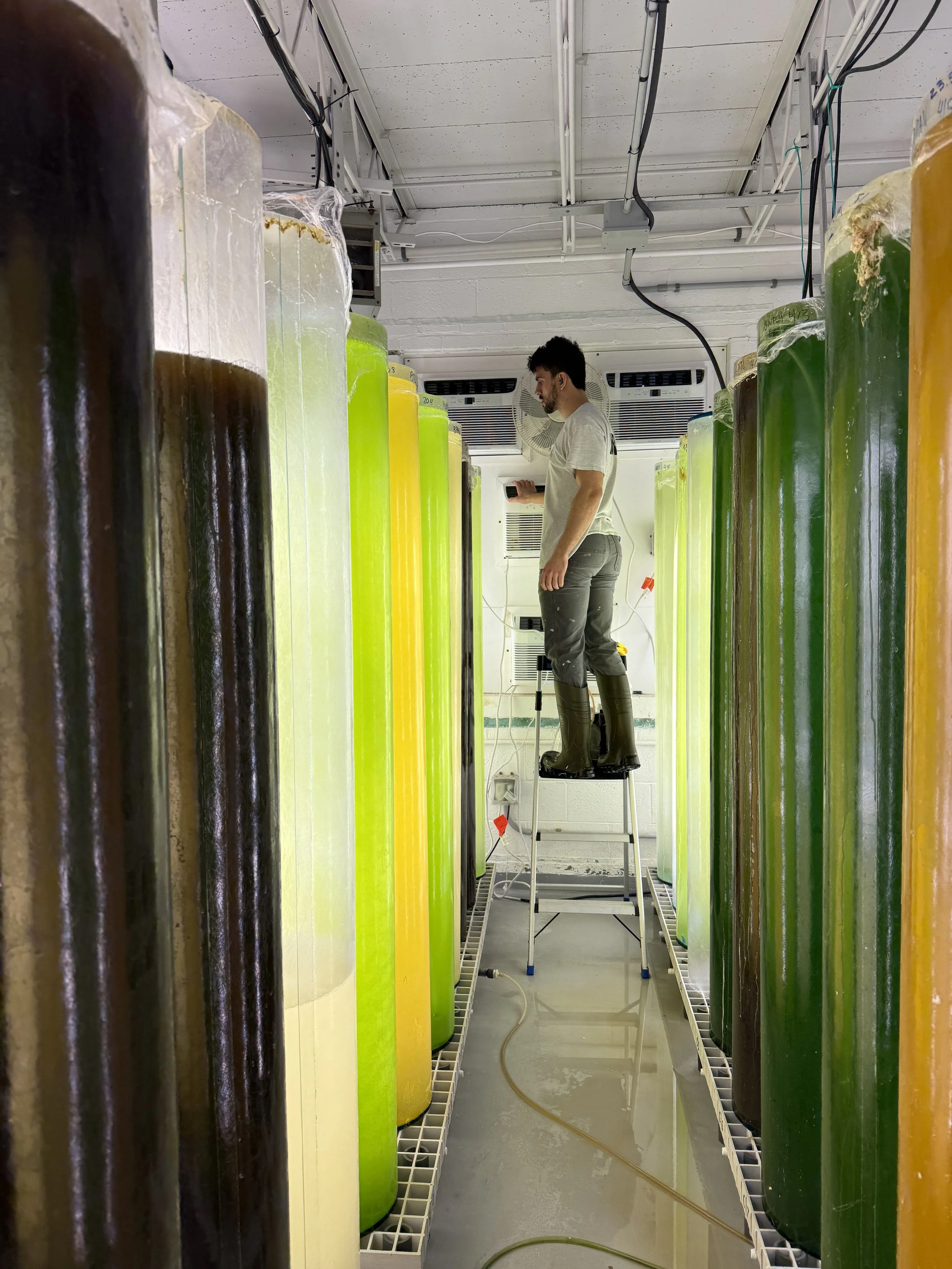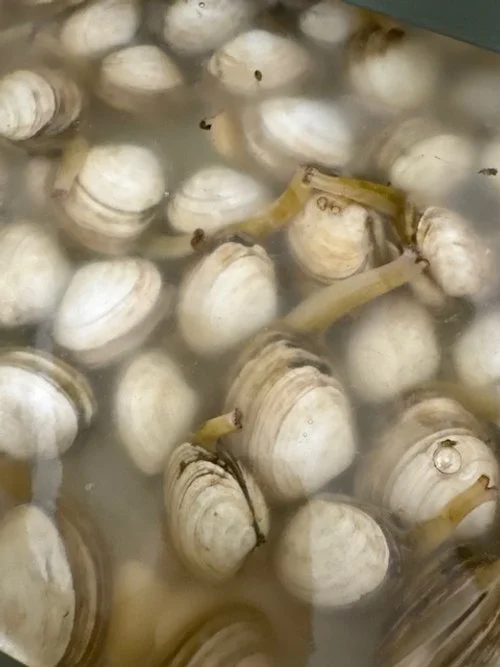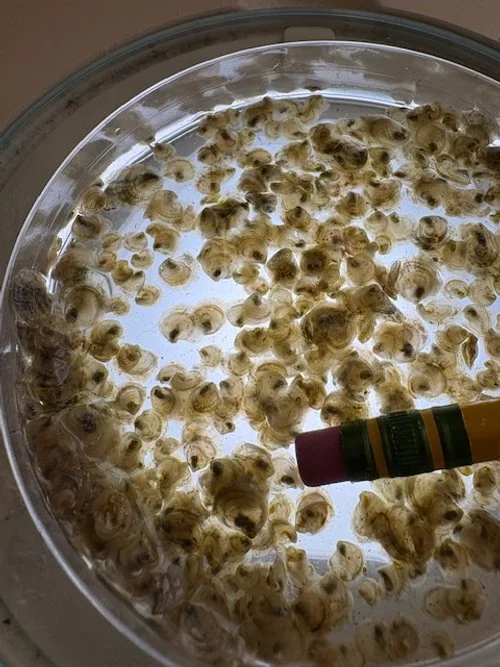the hatchery
Where the magic happens. Our hatchery is located in Harpswell, ME. Utilizing Maines cool, clean waters, we grow shellfish that impart several lines of healthy, disease resistant, and quick growing genetics. Our dedicated staff cultivates several strains of algae to meet the varying nutritional needs of varying shellfish. Though our main focus is oysters, we also have experience growing hard clams and surf clams. Our team has over 30 years of experience in the industry and are passionate about providing quality seed to growers along the east coast. Please head to the ‘seed’ page for pricing and availability.
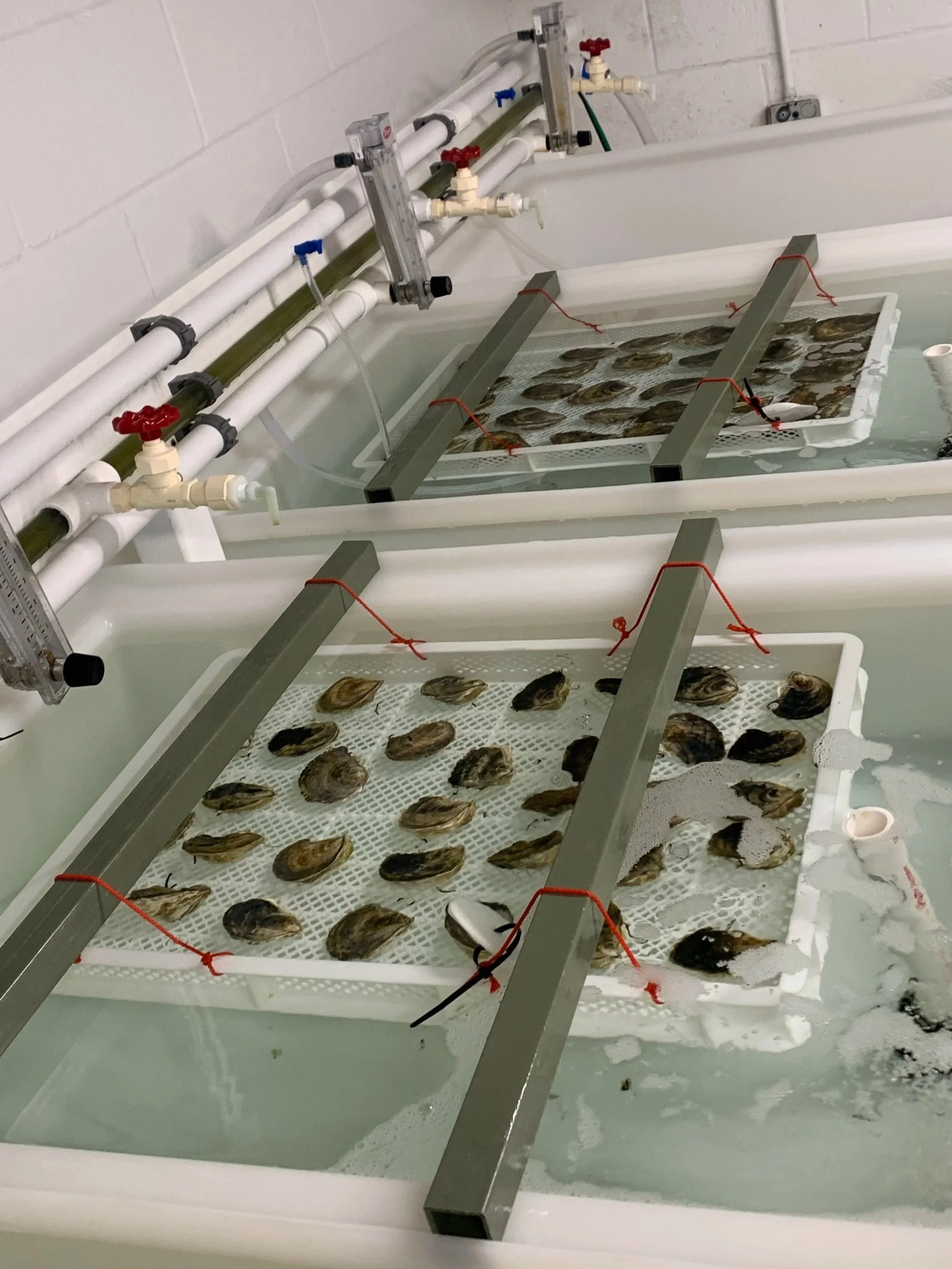

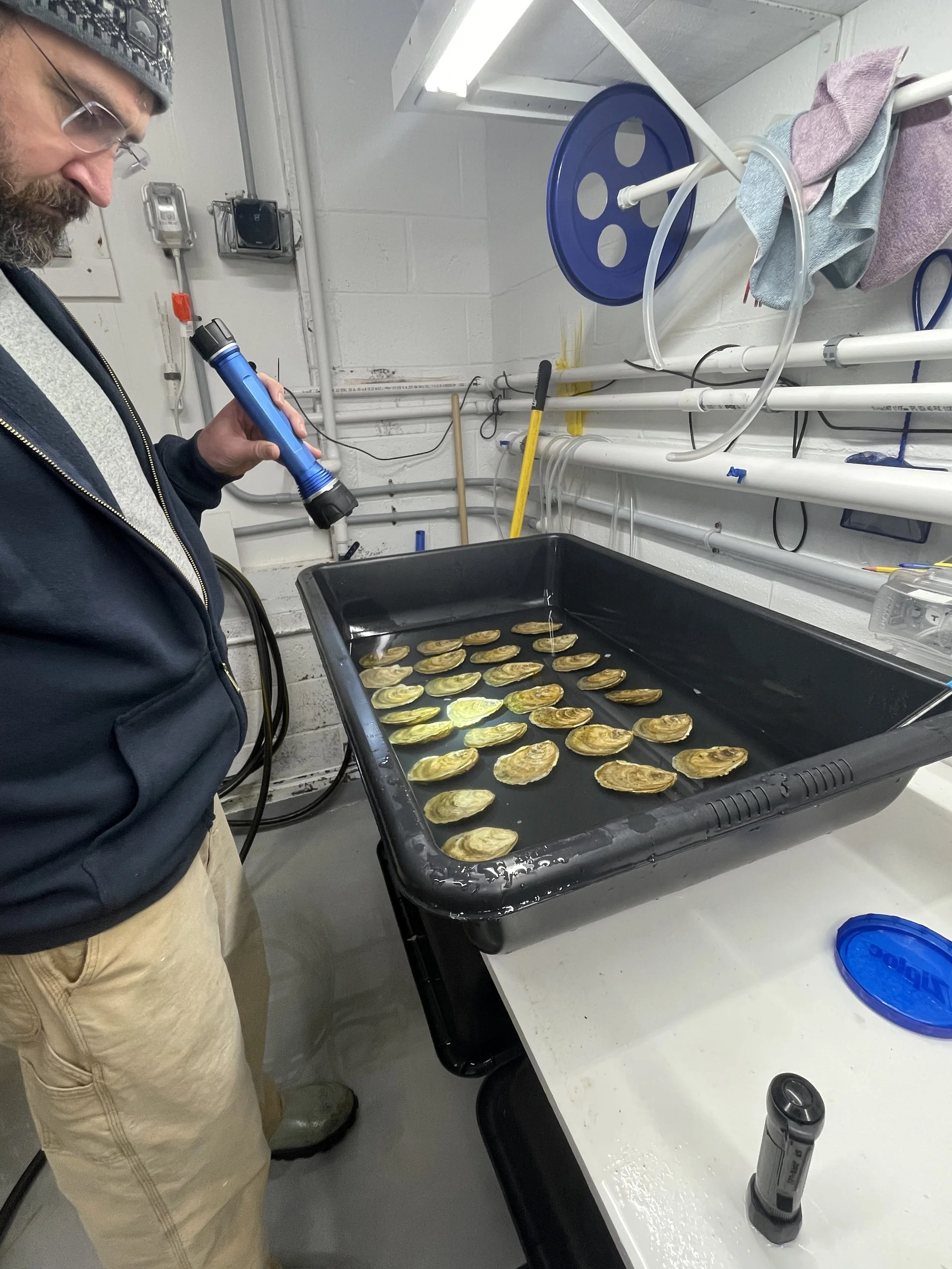
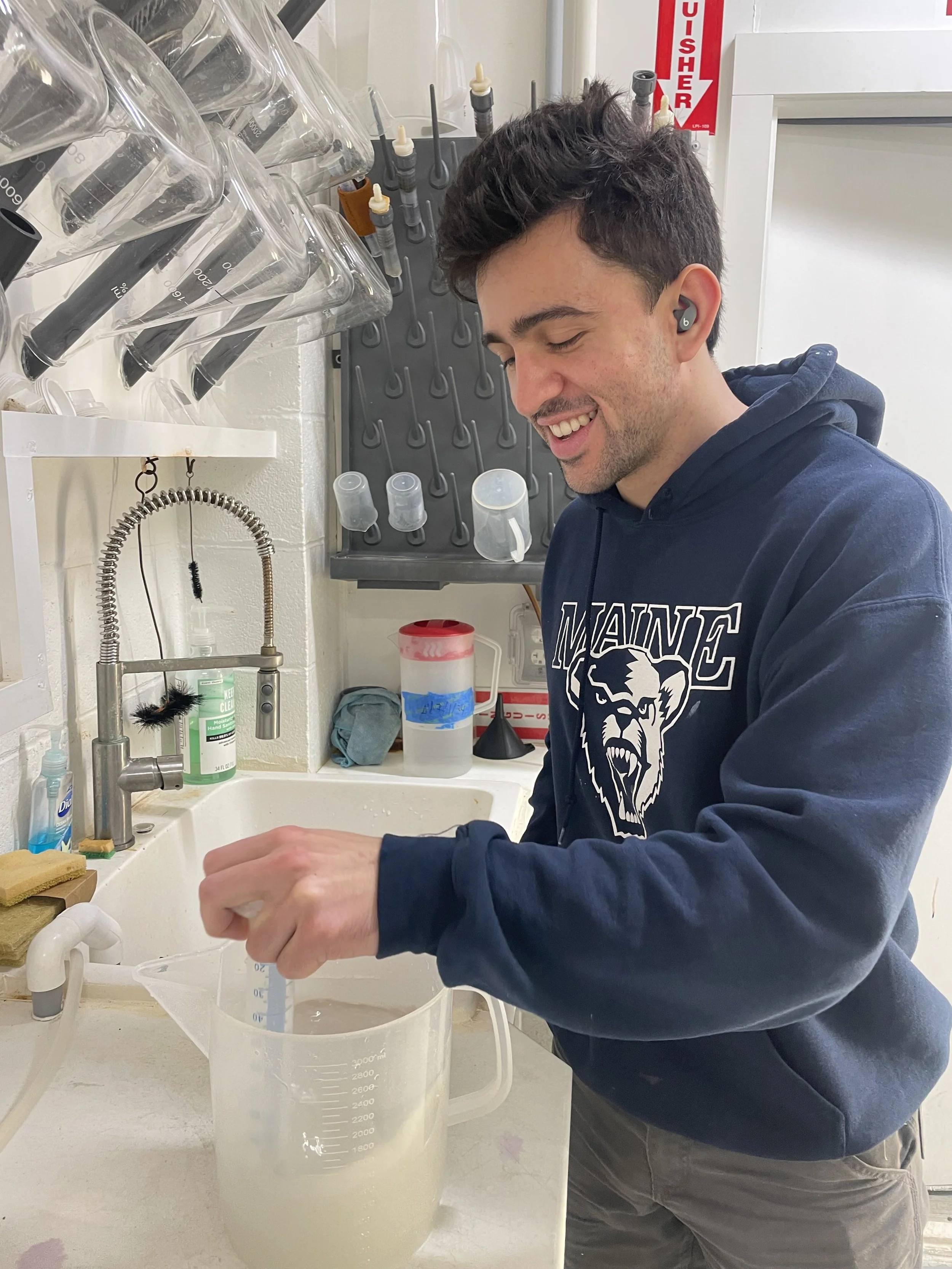




Algae Production
Our team cultivates multiple strains of algae to nourish the shellfish—a critical component of hatchery operations. The health and growth of the shellfish are entirely dependent on the quality of the algae they consume, making this one of the most essential aspects of our work. We maintain two distinct algae cultivation systems: one dedicated to feeding larvae, and another designed for juvenile shellfish.
Broodstock
Broodstock oysters are mature adults selected specifically for breeding. We choose our broodstock with care, prioritizing traits such as shell shape, cup depth, and overall survivability. These oysters remain in the water until January, at which point we bring them into the hatchery to begin the conditioning process. This involves gradually increasing the water temperature to stimulate and prepare them for spawning.
Spawning
Our spawning typically takes place from January through May, mirroring ocean temperature increases. When it's time to spawn, we place our broodstock into individual basins, where spawning is triggered by rapidly cycling water temperatures. The fluctuating water temperatures cause our broodstock to release their gametes. Males release their sperm in a steady stream while females release their eggs in quick bursts. Eggs from females are then collected, pooled, and washed through a fine screen and combined with sperm where fertilization will begin. They are then transferred to larval tanks to begin the next stage of development.
We currently produce oyster (Crassostrea virginica), hard clam (Mercenaria mercenaria), and surf clam (Spisula solidissima) seed.
